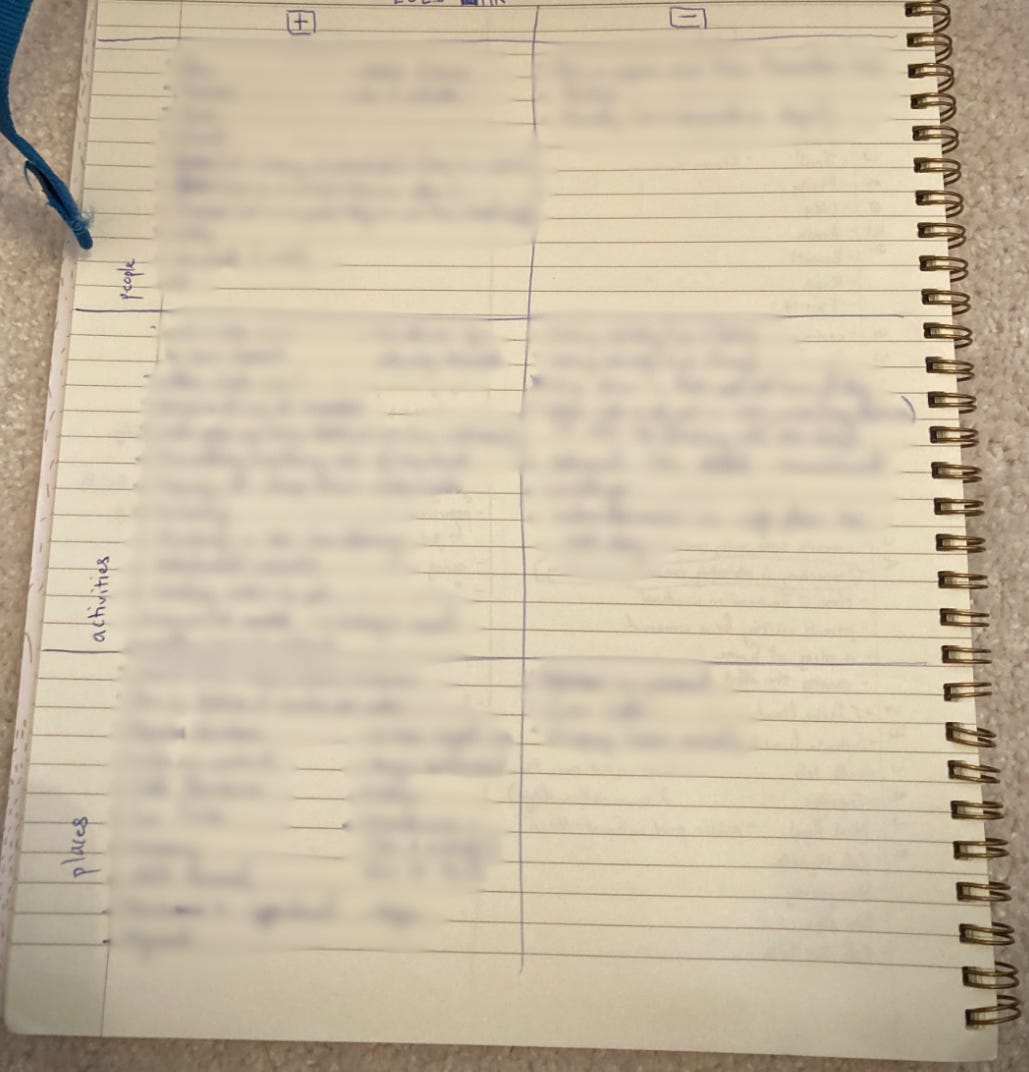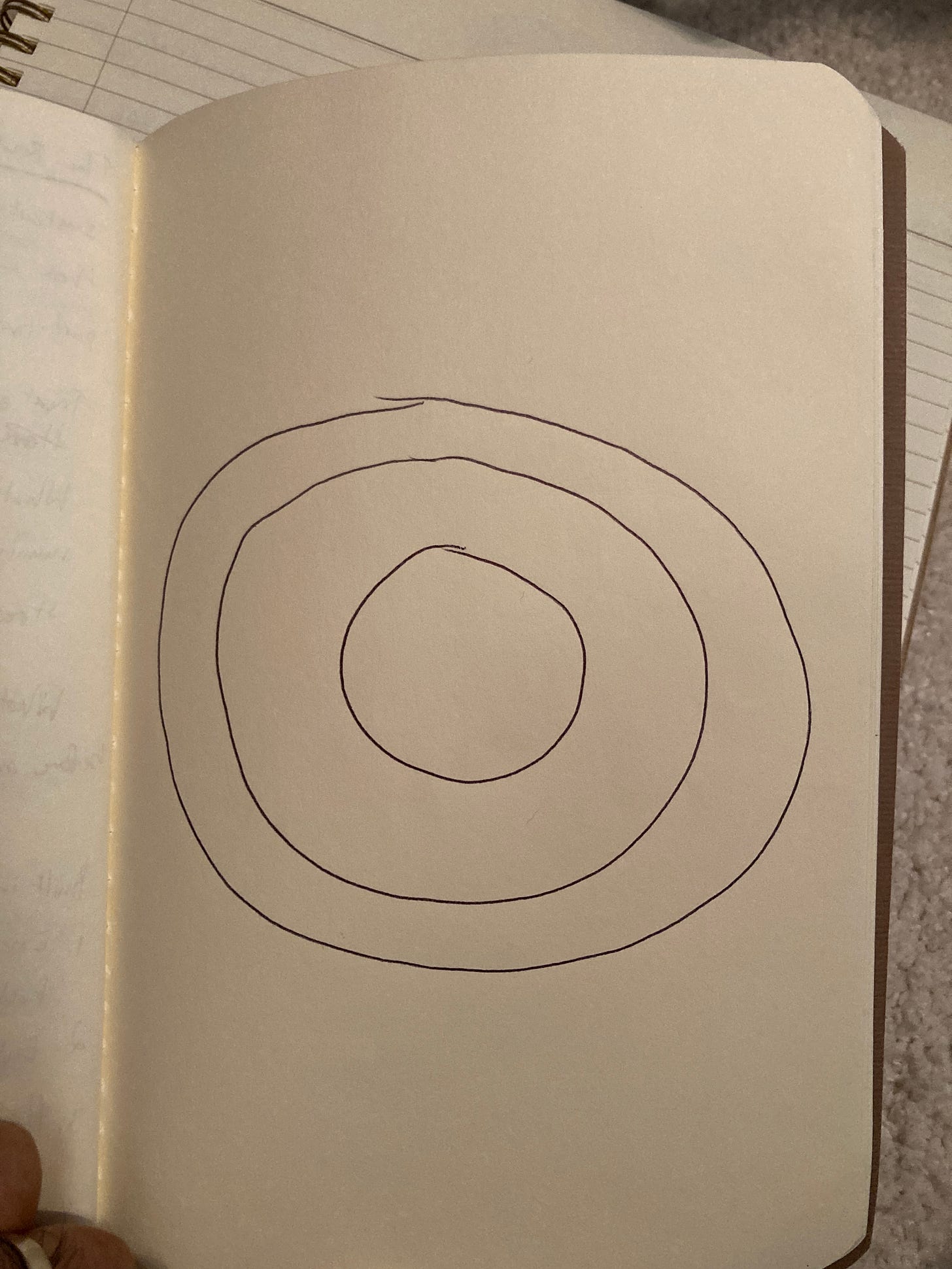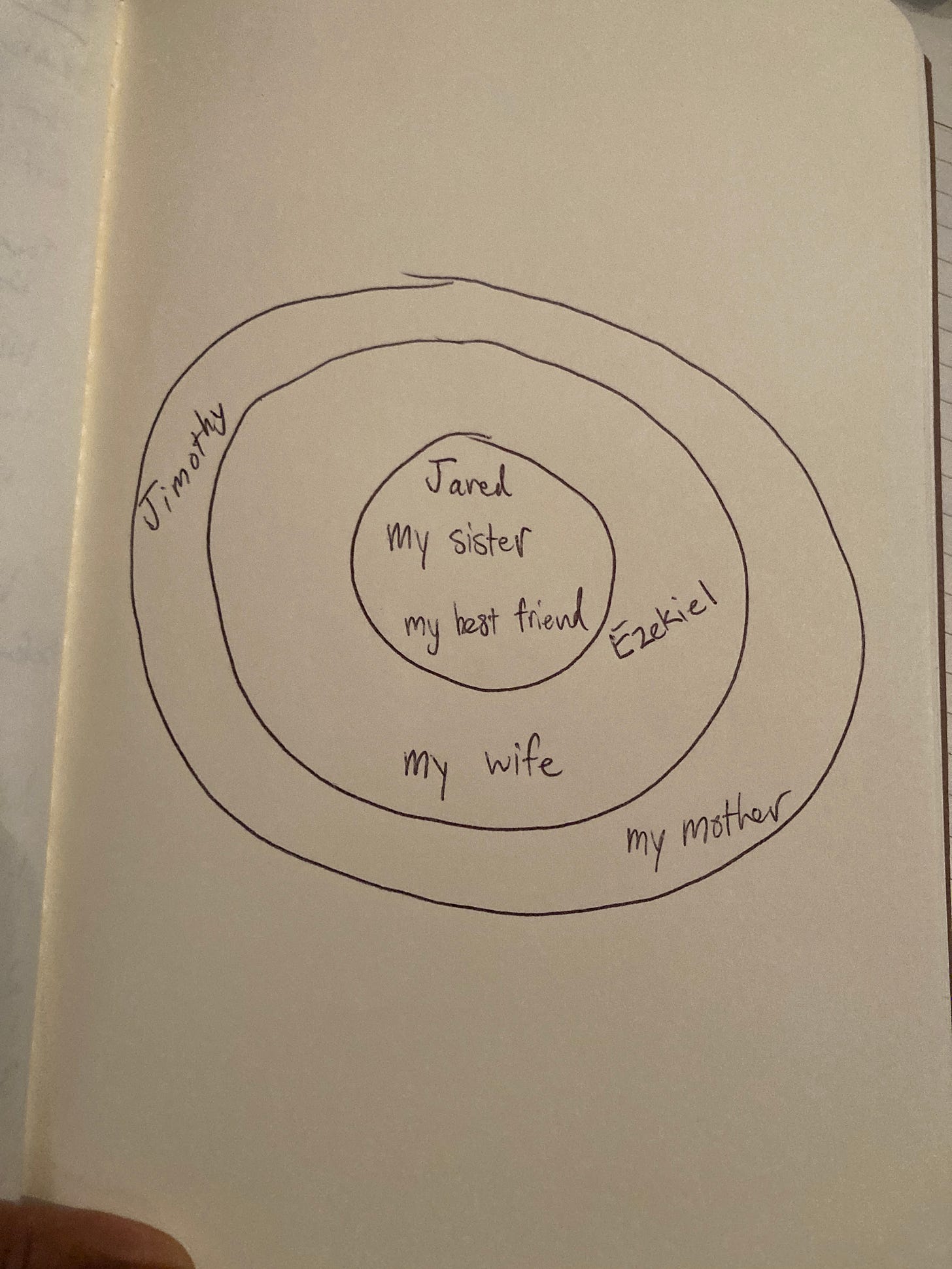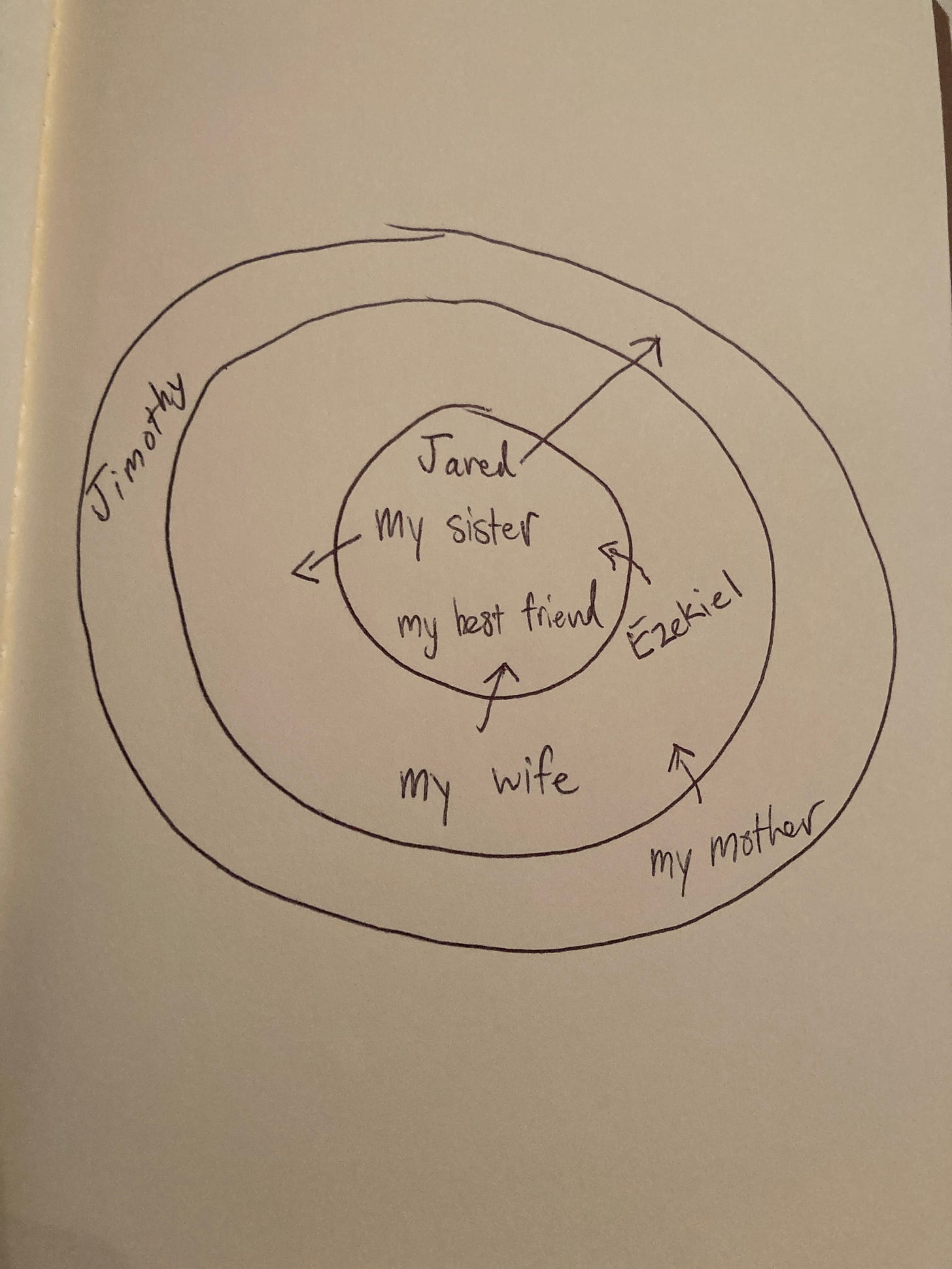There is no shortage of “New Year’s resolution” type resources. They’re mainly variations of what TikTokers call manifestation.
But is there any difference between a resolution and a wish?
When was the last time wishes reliably came true? (Comment below if you secretly have a genie up your sleeve.)
Enough with relying on half-ass goals that lead to no change.
Create your own actionable insights to design a life you love.
"Study the past if you would define the future." — Confucius
1. Past-Year Review
I’ve tried enough New Year’s related tools to learn that the only ones of value are those that prompt you to reflect on your past year.
For the past half-decade, my go-to tool for this is what Tim Ferriss calls the "Past-Year Review” (PYR). It leads to the most reliably leads to valuable, actionable insights.
Be sure to click the link above for the exercise. He has a podcast episode nested in there for the instructions. A very fun and grounding 30 minutes to close out the year.
The tl;dr is:
Which 20% of people/activities/places were the most energy-giving this past year?
Oppositely, which 20% were the most energy-draining?
You can see this is predicated on the north star of energy.
"Manage your energy, not your time. It’s not the number of hours you put in, but the energy you bring to the hours that counts." — Tony Schwartz
This tool hits extra hard if you’ve been diligent this past year with inputting everything you do in a calendar.
You can keep it hand-written and bare-bones like mine above, or leverage this kind person’s Notion template here.
Some cool meta-insights I learned from last year’s PYR are:
do less: make fewer plans per day; and
be structurally unstructured: break my day down into 3 slots of morning, afternoon and evening, and leave at least five slots a week without plans, leaving room for my brain to breathe, or for serendipity to unfold.
2. The Relationship Compass
Given that my personal maxim is that true wealth for me = the quality of my closest relationships, I felt compelled to get more granular than the PYR above is able to specifically when it comes to relationships.
My desire to 1) de-prioritize some relationships to create space for 2) relationships I wanted to prioritize, either again or for the first time, was missed, because I didn’t have a clear list to refer to so I could keep these intentions top of mind.
Build your Relationship Compass
Step 1: Draw out 3 concentric circles.
Step 2: Write down the names of people who you consider as a part of your community. The circle in which you write their name is based on how close they are to you based on where they're at TODAY (not a year ago).
The innermost circle is for the few people who are the core of your tribe. You're down to spend time with them multiple times a month. E.g. best friends or very close family members.
The middle circle is for the people you consider good friends, but not your best friends. You're down to spend some time with them, but not all the time. They'd make the invite list for an intimate gathering you'd host.
The outermost circle is for people who are part of your community, but you don't see often, either because of natural constraints or because you don't get along enough. Regardless, you appreciate them enough to consider them as a part of your world.
Step 3: Draw arrows for people you want to prioritize more or less this year. You’re intentionally shifting people’s importance within your community this upcoming year.
The end result is a compass that you can whip out whenever your gut is telling you something is off with how your week’s worth of plans feel.
3. Shane Parrish’s “Annual Review'“
To complete the trifecta, a tool that I keep going back to whenever uncertainty or fog appears when I try to look a bit into the distant future, is the Annual Review by Shane Parrish.
Just make a copy of that Notion and you’re set.
It’s just as effective to do the whole booklet in one go as it is to attack whatever section you feel drawn to at a given moment during the year.
Doing this on NYE or New Year’s is the equivalent of the feeling of spring cleaning; you feel very proactive in your life. What you’re proactive in, in this case, is wisely allocating your most precious resource.







